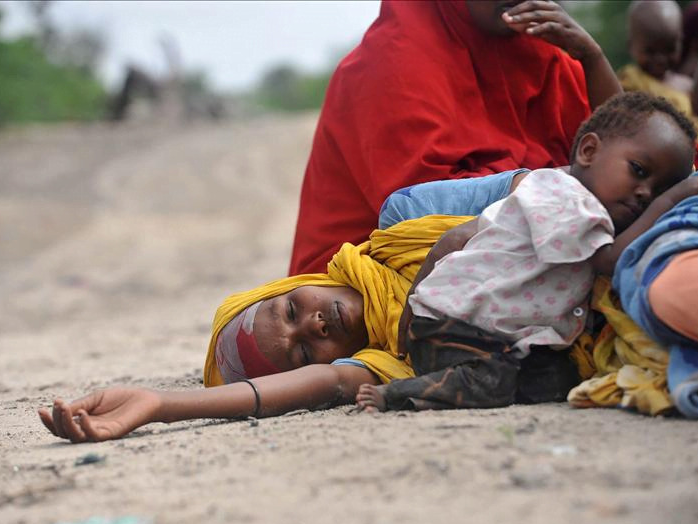
United Nations, June 2 (RHC)-- A pledging event convened by the United Nations this past week fell far short of the $7 billion that was called for to aid countries in the Horn of Africa, where more than 23.5 million people are currently suffering from hunger brought on by one of the worst droughts in recent history.
U.N. Secretary-General António Guterres said as he announced the pledge drive that "action will make all the difference" to avert a catastrophic famine in Kenya, Somalia, and Ethiopia, where 43 million people have faced five consecutive rainy seasons which brought vastly insufficient rain.
The High-Level Pledging Event brought in only $2.4 billion, with the United States making the largest donation—an additional $524 million, making its total contribution to humanitarian efforts in the region $1.4 billion this year. By contrast, the country's military budget for the current fiscal year—which includes funding for military activity in Somalia—is $858 billion.
Guterres called the failed pledging event "unacceptable." Without an immediate injection of more aid, he said, "emergency operations will grind to a halt, and people will die." "We must act now to prevent crisis from turning into catastrophe," Mr. Guterres said. "Let us act together now—with greater urgency and far greater support."
The U.N. chief said in a statement that on a recent trip to the Horn of Africa, he met families who have been driven from their homes in Northern Kenya "in search of water, food, and incomes" as the ongoing drought has left them with "parched landscapes and perished livestock."
As scientists at the World Weather Attribution wrote in a report in April, the five consecutive failed rainy seasons in East Africa would not have occurred without the climate emergency and continued fossil fuel emissions, 92% of which come from the Global North.
Guterres said the Horn of Africa has become "the epicenter of one of the world's worst climate emergencies." "People in the Horn of Africa are paying an unconscionable price for a climate crisis they did nothing to cause," said Guterres. "We owe them solidarity. We owe them assistance. And we owe them a measure of hope for the future. This means immediate action to secure their survival. And it means sustained action to help communities across the Horn adapt and build resilience to climate change."
The international humanitarian group Oxfam said it was "deeply disappointed" by the failure of wealthy countries to contribute enough money to avert famine in the region, noting that much of the funding included in the $2.4 billion was previously pledged.
"This was a vital moment for rich donors to step up and show their commitment to saving lives," said Fati N'Zi Hassane, director of Oxfam in Africa. "They have failed millions of people caught up in this vicious spiral of hunger, displacement, and insecurity."
"One person is likely to die of hunger every 28 seconds between now and July across Ethiopia, Kenya, Somalia, and South Sudan alone—the highest on record," said Hassane. "To wait for a fully declared famine before donors act decisively is both complicit and immoral."
"We cannot continue drip-feeding aid to keep the worst of the crisis at bay while each day millions are being pushed further to starvation," she added. "What East Africa urgently needs is a drastic global collective effort not only to save lives now but to scale up programs that help people become more resilient to shocks like climate change and food price inflation." The World Food Program noted on Wednesday that a basket of food in the Horn of Africa costs 40% more than it did a year ago.
The United Nations Office for the Coordination of Humanitarian Affairs said the pledges that were made this week will help humanitarian agencies to sustain supplies of food, water, healthcare, and nutrition services, but said "additional resources are urgently required to prevent a return to the worst-case scenario."
"We must persist in pushing for stepped-up investments," said U.N. deputy emergency relief coordinator Joyce Msuya, "especially to bolster the resilience of people already bearing the brunt of climate change."

